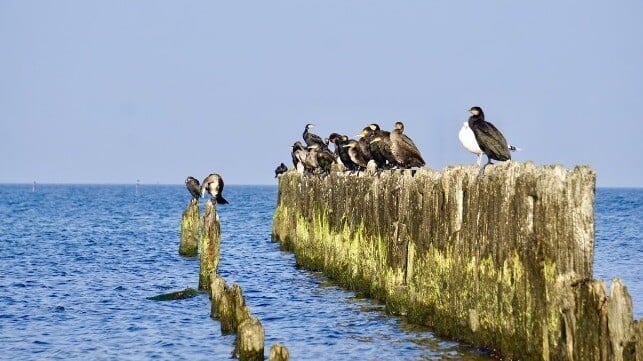Baltic Fishermen Press EU to Relax Rules on Culling Cormorants and Seals

The European Union has spent years bringing back species that have been reduced by human activity, like wolves and bears, but some of the member states around the Baltic are ready to go back to the old ways - at least when it comes to seals and cormorants. Finland, Estonia, Latvia and Sweden are leading a campaign to relax EU restrictions on culling these two fish-eating species, which have been increasing in number. Baltic fishermen and aquaculture operators believe that these predators are threatening their livelihoods, and want the numbers reduced, much to the consternation of environmental conservationists.
In an EU ministerial meeting on Sunday, Swedish Agriculture Minister Peter Kullgren called for the reintroduction of "ecosystem-based" hunting to rebalance the ratio of predators to fish.
"Over the past 20 years, we've seen a huge increase in the numbers of these species in the Baltic Sea, and this of course is hindering the recovery of some of our fish stocks, particularly for coastal fisheries. We've seen 2-3 times more losses when it comes to landings," Kullgren said. "We would like there to be a possibility for these fish stocks to recover to sustainable levels."
He emphasized that Sweden had a tradition of seal hunting, and that there were practical uses for the meat. "Seal products have been very much used in traditional settings," he said. "The hunting of that seal has to be carried out in a sustainable way."
Denmark, Romania and the Czech Republic expressed general support for the idea of revived hunting of cormorants, in part because of the bird's impact on inland fish-farming operations. Romania's representative said that large cormorants consume about 12,000 tonnes per year from fish ponds in his country alone.
Researchers have concluded that cormorants have a relatively small impact on perch stocks in the Baltic, though localized effects are observed. In Denmark, the birds have a major impact on migratory fish species in riverine environments, consuming more than 80 percent of tagged fish in one study.

that matters most
Get the latest maritime news delivered to your inbox daily.
The question of culling cormorants is difficult and contentious in Scandinavia, according to a recent study by the Finnish Environment Institute. Participants in regional cormorant working groups told researchers that their community-based talks were "extremely quarrelsome" and reached a dead-end, with both sides walking away with a sense of distrust. "If one thinks that it is not a very big problem and another thinks it is a major problem, the whole process goes onto the wrong tracks right from the beginning," one participant said.
Conservationists suggest that fish stocks are more influenced by the Baltic Sea's poor water quality than by cormorants or seals, and that it would make more sense to address long-term issues with pollution and eutrophication before moving on to predator culling.
